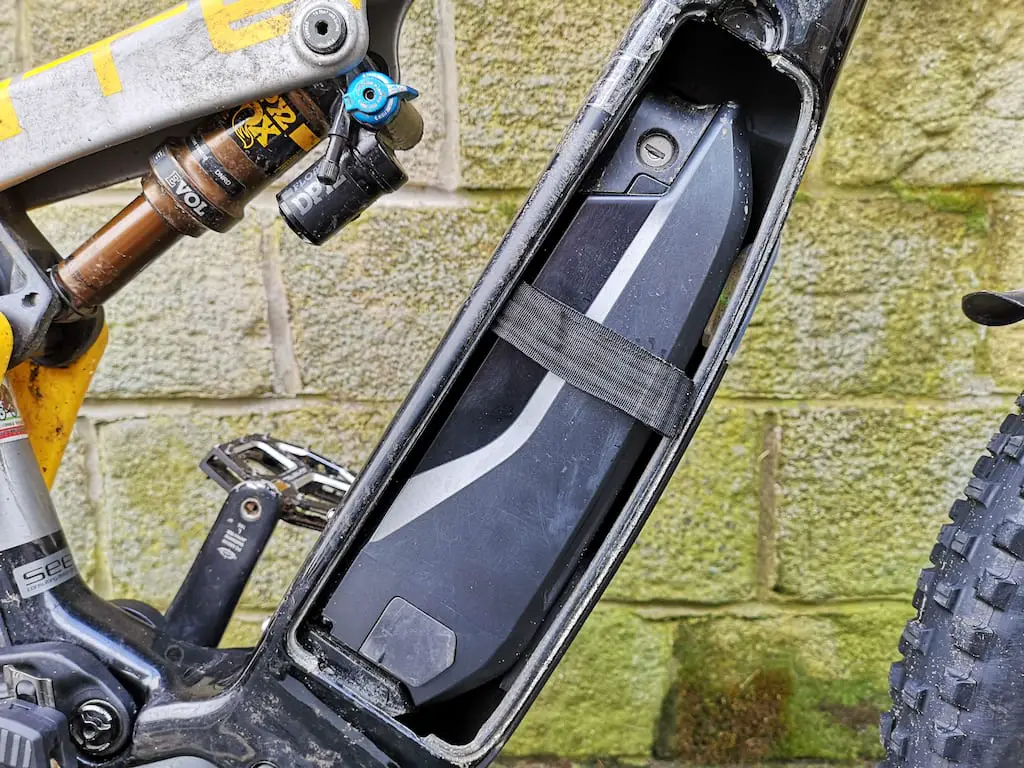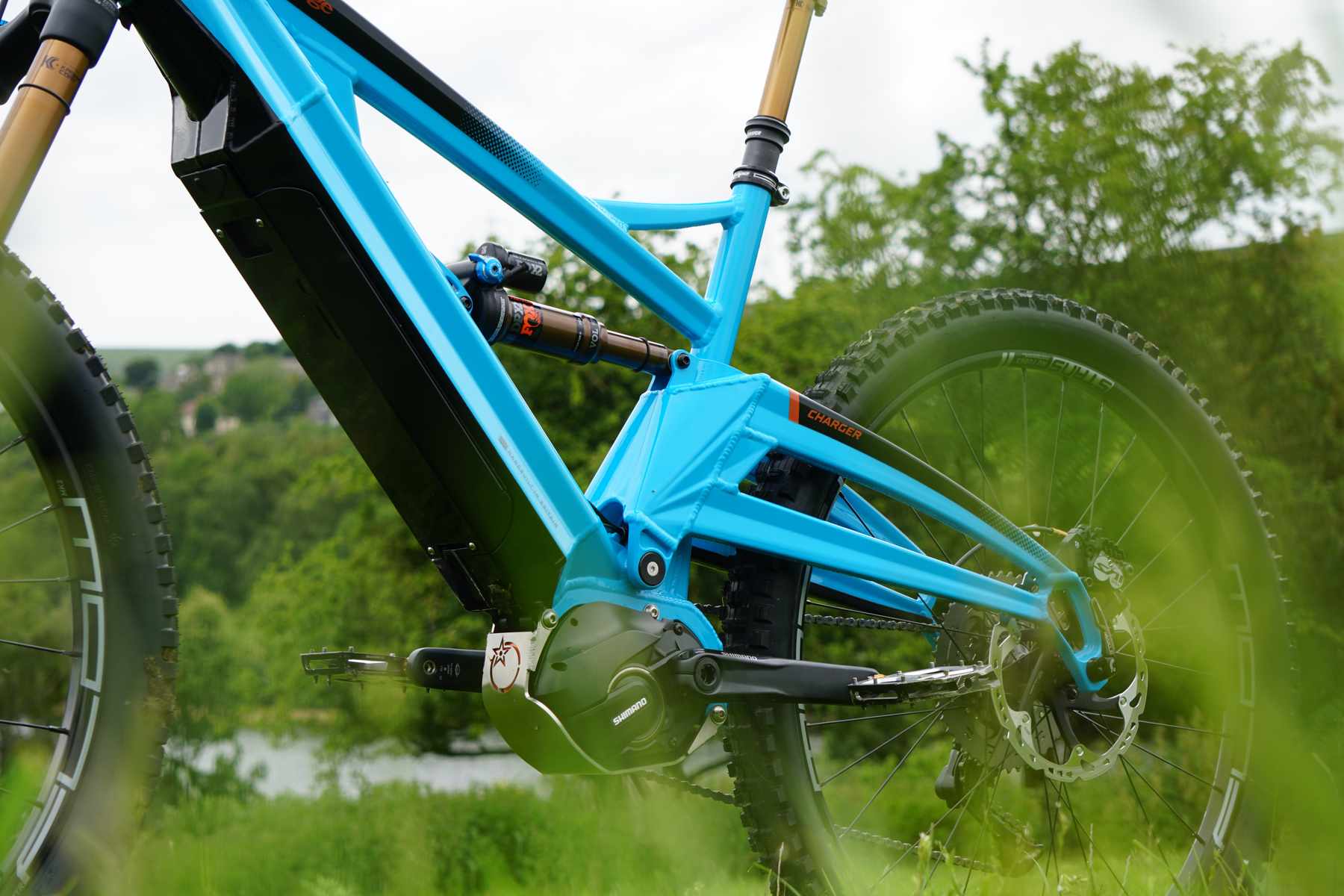Antony addresses the questions of whether e-bikes are green technology, or an environmental red herring.
A few weeks back I found myself writing a response to an article in the Times newspaper. Someone there had caught wind of the fact that you can now buy a mountain bike with an integrated electric motor, and decided that this was going to bring about the destruction of the British countryside. I said it was a very silly article, and the responses in internet-land were pretty much in universal agreement. However there were also some commenters out there who voiced concerns over the growth of e-bikes on environmental grounds. Taking a low-impact activity like cycling, and adding batteries, motors and electronics into the mix – that can’t be good for the planet, surely?
My disclaimer
Before we go any further, a bit of a disclaimer is required. There’s an assumption that if you work in the cycling media, you immediately lose your objectivity, as you have to stay matey with the bike industry and dutifully promote whatever they’ve decided to inflict on the unsuspecting public this year. This is not the case here. I haven’t had my palm crossed with free T-shirts or press trips. I don’t own an e-bike. And I’ve never been given one to test (as an occasional freelance contributor to this website, I’m way too far down the pecking order for that).
My main occupation at the moment is studying for a Master’s degree in Transport Studies, so while I’m not claiming to be any sort of authority on the subject, I do have an interest. And e-bikes are a really interesting development – a mix of old and new technology that could be a game-changer for short-distance transport, but are viewed with some (justifiable) suspicion by the normally-aspirated cyclists out there.
Technology for transport
As someone who rides bikes for transport, I’m sceptical about complicating a simple, low-maintenance machine with a load of sensitive electronics. And I’ve face-palmed hard during a presentation by an e-bike manufacturer who described its products as “zero-carbon“. So I’ve tried to separate the facts from the hype and look at the evidence out there for what damage e-bikes do, or don’t do, to the planet.

Battery Farming
First of all, let’s look at the bad stuff, starting with arguably the worst bit of e-bikes: the battery. Current e-bikes use lithium ion batteries, the same technology which is in your phone, the lights that you go night riding with, your GPS device, and pretty much every electronic gizmo these days.
There are a huge number of Li-ion batteries out there – one report estimates that in Europe, the equivalent of 20 Li-ion batteries for every person are sold every year. And Li-ion batteries are starting to come under increasing scrutiny from an environmental perspective, because lithium extraction is, to put it kindly, a dirty business. It takes place in some of the most arid regions on earth, and involves pumping huge quantities of scarce water into salt flats, or crushing and processing tonnes of rock.
Li-ion batteries need virgin lithium, not recycled stuff, and the recycling rate for worn-out batteries is poor, with some estimates as low as 5%.
The figures don’t tell the whole story though. For starters, just 1% of a Li-ion battery is pure lithium, and when it comes to raw materials with ethical and environmental issues, lithium is by no means alone.
There are huge issues with the way many extractive industries are regulated, and that goes for aluminium, oil and gas too. These can only be addressed by closing loopholes and improving governance. There’s very little point in boycotting e-bikes, unless you’re also going to get rid of all those other items of tech which use Li-ion batteries too.
Low Recycling Rates
Many Li-ion batteries are small, and are built in to the devices they power, so it’s all too easy for them to end up as general waste. The large, removable battery that powers an e-bike has a lifespan of several years, and at the end of this, it’s arguably much more likely to be recycled.
Many e-bike brands are already running recycling schemes, and if you bought your e-bike in a country covered by the EU’s Battery Directive, such as the UK, the manufacturer is required by law to recycle the battery once it’s worn out.

Turning to the rest of the bike, it’s obvious that building and charging an e-bike will have an additional environmental impact, as the e-bike is a much more complex machine, with all the same parts as a regular bicycle, plus the electronics and the motor. There are quite a few life cycle analyses of e-bikes out there, and while all these studies are based on some hefty assumptions, the process of manufacturing an e-bike seems to generate 2-3 times the emissions of a regular bike.
The energy used to charge an e-bike once it’s produced isn’t huge though, probably because it’s relatively light (by the standards of a vehicle, anyway) and it’s also partly powered by its rider. In fact one study found that the emissions an e-bike produces in daily use are only 1 gram of CO2 per km more than a normal bike.
Green Technology Transport Trends
Let’s zoom out a bit, away from cycling, and look at transport as a whole. As a society, we’re still massively dependent on vehicles which run on fossil fuels, and a lot of these vehicles are travelling around almost empty, except for the driver. This needs to change if we’re going to stop cooking the planet, but the most popular suggested solution – electric cars – comes with its own problems.
Batteries have a relatively poor energy density compared to a tank of petrol, so fully electric cars (battery electric vehicles, or BEVs, to give them their somewhat maternal industry acronym) are heavier than vehicles with internal combustion engines. This means they need more power to push them along. Electric vehicles are also very cheap to run, which means that they will probably be used more too. And as we head towards 2030, a date which probably seemed a very long way off back when we were setting greenhouse gas reduction targets, our ability to generate all this power in a carbon-neutral fashion is looking distinctly dubious.
If they started to replace cars as everyday personal transportation, e-bikes could reduce our energy consumption dramatically, and free up a load of space in our towns and cities, while still getting people to where they need to be. And there’s evidence that this could happen. Studies of e-bike users have generally found that unless they already have restrictions on car use (for example, students living on campus), they tend to drive less and ride more.
Most travel isn’t long-distance business trips – in the UK, two thirds of all our journeys are less than 5 miles. Swapping to an e-bike ought to be possible for some of these, even for people who wouldn’t think of themselves as cyclists. And if e-bikes became popular for everyday journeys, there could be knock-on benefits for all cycling, such as better infrastructure or more secure bike storage.

Electric Mountains
What about mountain biking though? Again, if you look at e-MTBs purely as a replacement for your normal mountain bike, they’re worse for the environment. But do you just ride your mountain bike from your door, or do you tend to drive somewhere with it first? If you answered yes to that second question, you’re not alone. At a trail centre or bike park the overwhelming majority of riders tend to arrive by car.
If you have an e-MTB which lets you get to decent trails without driving, that’s a win for your carbon footprint. Another interesting aspect of e-MTBs is that it’s currently very difficult to fly with one, as the batteries (those things again!) are prohibited items on pretty much all commercial flights. If e-bikes took over mountain biking, would we see more local trail development and fewer long-distance trips to exotic destinations? It’s difficult to say, but I’d be very surprised if we carried on riding in the same way as before.

In a green-off with conventional bikes, e-bikes will always lose. But not by as much as you think. And to condemn them as bad for the environment ignores a lot of wider context. If you view them as a substitute for bikes, they’re not a good thing. But if you look at them as a substitute for cars – whether it’s for getting to work or avoiding a drive to a trail centre – the benefits are obvious.
E-bike use is growing at a phenomenal rate, and we still don’t know how this will affect cycling, but based on the available evidence, my guess is it’ll largely be positive. In the meantime, if anyone fancies funding a PhD on e-MTB use, let me know…








Good article, although I wouldn’t call it a “green off”, none motorised bikes still have a huge carbon footprint due to the energy used in order to create one, carbon manufacture, Steel, Aluminium etc, they are all the product of mass energy to achieve the end result, as for e-bike batteries, just how does the industry intend on re-cycling those in the future, I would argue that some sort of KERS {kinetic energy recovery system} would be the way forward.
Ahhh… Re-cycling in bike industry (and in general)… That ‘ole chestnut…
Recently I started to be much more skeptical about various companies and industries claims of re-cycling schemes, programs and per cents.
You only need to scroll some major new portals to whisk increased number of cases when so called recyclable material sent to some developing country for processing turned up to be pile of contaminated, utterly useless crap in the best case scenario or outright hazardous waste including medical stuff in the worst.
That makes you think a bit…
Cheers!
I.
I’ve long pointed out that battery manufacturing is a dIrty DIRTY business. That’s where the damage to the environment happens.
As far as ebike batteries, they’re 50 times (200 times maybe) larger than that in my phone or watch. So they are SO much more polluting.
Now if ebikes replaced cars then great. Net improvement.
But they don’t. As leadt as far as MTBs are concerned.
They’re virtually all bought IN ADDITION to a regular mtb. And are transported by car or van. So a lose-lose-lose.
Local trails redeveloping to replace foreign jaunts ? Never. It’s not happened in the past 40 years, the addition of a battery won’t make it happen.
@robertajobb, do you have any evidence to back up your assertion that e-MTBs are all driven to the start of a ride, or that e-bike owners fly to ride just as much as regular mountain bikers?
If not, it sounds a lot like you’re just constructing a narrative to justify your distaste of someone else’s preferred form of recreation.
e-bikes are driven about in cars/vans – this is the UK. Go to a trail centre and see. Not everyone has decent trails within an (e-)bikable distance and most won’t have ever – there is no where to build them in most locations. We also don’t have any Alps or similar mountains so owning one won’t stop people going on foreign holidays.
No mention of the other aspect of the environmental impact: longer rides, getting up climbs impossible on a normal bike, more areas accessible by less fit riders etc etc all = more wear/erosion??
@Mad Pierre – again, that’s a hypothesis, not an observation.
I mentioned the erosion issue in the previous article. There’s limited evidence at the moment, but a fairly rigorous study by IMBA has concluded that type approved e-MTBs don’t cause significant additional erosion compared to regular mountain bikes. https://www.bikeforums.net/mountain-biking/1134479-imba-report-effect-e-bikes-trails.html
On a different note I can see appeal of local-ish riding thanks to e-biking.
I wouldn’t mind whizzing through Rotherham, Sheff all way up to let’s say Hope or Castletone on e-bike only to drop unnecessary weight of motor and battery on some sort of charging/secure storage station, then going for a ride only to collect my power-kit from the station at the end and cruise effortlessly back home.
That would of course require high level of modular construction and integration. But that might just work fine for me…
Cheers!
I.
There are already systems out there which let you do just that (well, remove the battery, anyway)… https://singletrackworld.com/charged/2019/07/04/cairn-e-adventure-bike-a-new-concept-with-a-strong-pedigree/
“Now if ebikes replaced cars then great. Net improvement.
But they don’t. As leadt as far as MTBs are concerned.
They’re virtually all bought IN ADDITION to a regular mtb. And are transported by car or van. So a lose-lose-lose.”
This is wrong.
I have information from one of the biggest ebike manufacturers in Europe that the majority of their eMTB sales are to riders for who their eMTB is their only bike and in many cases their first bike. eMTB sales to existing riders is of course a significant market but to say the majority of eMTB sales are to existing MTB owners is far from accurate.
The manufacturer I spoke to have gone from a sales proportion of 20% eMTB 80% MTB sales three years ago to 80% eMTB 20% MTB this year.
Let’s not even think about loading the grid up with everyone charging cars and bikes now. How long before the grid cannot deal with that demand?
@Mr Agreeable – “(well, remove the battery, anyway)… ”
That is nothing special. Few other bikes got removable power packs and covers in that place.
Battery AND MOTOR, that would be something..
Cheers!
I.
The energy needed to charge up an e-bike is tiny – roughly the equivalent of running a tumble dryer for 5 minutes. The biggest energy guzzlers in your home won’t be anything battery-powered.
@IvanMTB Lapierre E-Zesty has the Fazua Motor and Battery, both units can be completely removed from the bike enabling you to ride the bike as you would a conventional MTB.
What was hypothesis? The first part was an observation. The second part was a question.
I have friends with eBikes. I have ridden and enjoyed them myself. They are driven to good riding locations in vans by my friends same as we have to for our normal bikes. The same friends still get on planes with their non e bikes and jet all over the world to ride. That make it a clearer observation?
So we’re firmly in the realm of anecdotal evidence then. Jolly good.
That is pretty good.
Probably not yet simple plug’n’play with single move, but looks pretty promising 🙂
Cheers!
I.
Enough with your evidence-based arguments! Where’s the fun in *that*?
Is it that unbelievable? Just go to any trail center, Cannock chase is a prime example. They’re transported around in cars and vans like any regular mountain bike.
“Anecdotal evidence” – you know this is an online forum, not a court of law right?
I’m sorry, I don’t believe this.
“I have information from one of the biggest ebike manufacturers in Europe that the majority of their eMTB sales are to riders for who their eMTB is their only bike and in many cases their first bike.”
How do they even obtain that information? I’ve never been asked if this is my only bike nor my first bike and I’ve bought 9 mountain bikes over the last 13 years (and I’ve never bought from the same place).
Also, How many is “many”? Is that most of? The majority again? Can’t draw anything from this, but if I assume majority, they’d be seeing far better growth than the rest of the bike market. Conveniently vague i say.
Stupegg, we know that most people who ride at trail centres drive there. What that doesn’t tell us is whether people who buy e-bikes will mostly load them on the back of a car and drive to a trail centre, or whether they’ll do more riding locally.
I’d love to see some valid data for that. Can you get said manufacturer to publish that ? As it would be a really positive piece of pro-biking data.
Maybe our mainland European friends do do that and just run and e-mtb.
But I just don’t believe it for the UK.
Near every one I see, and when I talk to folks who have them (I’m from the North so we do talk to strangers out in the butt end of nowhere!) , they have been transported by van or car, or are an additional toy on top of the proper bikes.
So far I have met a total of 1 person once who had ridden their e-mtb from home into the hills (that was on Houndkirk Moor and the lady lived about 8-10 miles away so could ride from home)
So… let’s see the valid data (e-mtb not commuter e-bikes in cities) to prove me wrong.
There’s not much data out there on how people use e-MTBs – certainly not from a carbon emisisons perspective. But a customer survey from a manufacturer almost certainly involves a bigger sample size than one person chatting to the odd e-bike user on a ride. Worth noting that this survey probably includes the UK too, unless you’re aware of any e-bike manufacturers that only sell in mainland Europe, yet are still chatting with UK journalists?
I still don’t see how anyone can maintain that e-MTBs won’t have an effect on riding patterns. If you’ve spent £4k on an e-bike with a range of 60 miles, would you only use it for riding 8-mile loops at a trail centre? The like of EMBN don’t think so.
To draw another comparison, when mobile phones came out, and everyone had a device in their pocket that could send an email, did you go around vociferously asserting that people would still write letters?